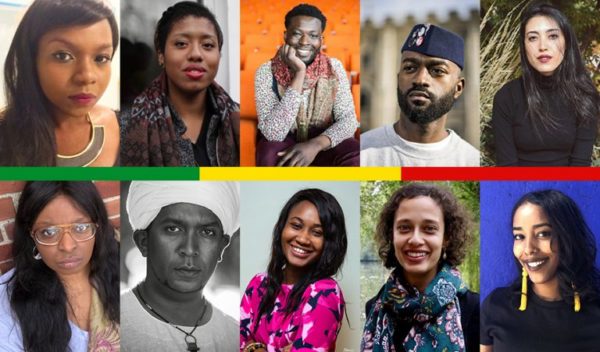
In 2018, Brittle Paper introduced a Brunel Prize Poems Review series, starting with poems on that year’s shortlist. The series returns for the 2019 Prize.
READ: Brunel Prize 2019 Poems Review | Part 1: Jamila Osman & Selina Nwulu
READ: Brunel Prize 2019 Poems Review | Part 2: Omotara James & K. Eltinae
READ: Brunel Prize 2019 Poems Review | Part 3: Afua Ansong & Mary-Alice Daniel
The 2019 Brunel International African Poetry Prize shortlist came with ten poets, most of whose works are truly worthy of the career-making prize. Through varying styles and themes, all the poems have one thing in common: a determination to speak the truths of their realities, which is what good poetry should do. These poems are strong. However, whether they represent the high quality of contemporary poetry by Africans is another question entirely. In fact, a strong argument could be made about subsequent shortlists failing to match that of the 2017 Prize.
Looking at the finalists, one would be forgiven for assuming that the 2019 prize was open only to Africans in the diaspora. It also makes us wonder if there is even such an essentialist idea as “African poetry,” as almost all the poems could have been written in an African-American context. But this is not the time to dwell on that. That is a question to be asked—and, hopefully, answered—on a different day.
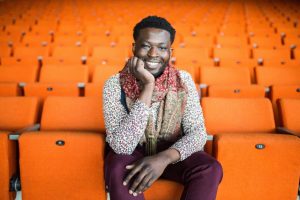
EMMANUEL OPPONG-YEBOAH
Emmanuel Oppong-Yeboah is a Ghanaian American poet, editor, and educator living out the diaspora in Boston, Massachusetts. He is both Black & alive. Born in 1993, Emmanuel currently teaches 11th grade English at Cambridge Rindge and Latin School, and in the past has served as a teaching artist at organizations such as the Massachusetts Literary Education and Performance Collective, the Cambridge Arts Council, Northeastern University, and the Institute of Contemporary Art, Boston. When not kicking it with juniors, Emmanuel works as an instructor at the Boston-based nonprofit Grubstreet, and as an associate editor for Pizza Pi Press. Emmanuel’s poem, “kra-din” (Kweli Journal), is a recent recipient of the Pushcart Prize (XLIII). In his free time, he enjoys hot carbs, brightly colored chapbooks, and the long sigh at the end of a good book.
“Open” | “Homegoing” | “Abebou”
Like the previous years’, the 2019 shortlist is not starved of offerings about home. The obsession with home and its unattainability has become a uniform theme in many African poetries. What that says about the state of blackness in the world is open to interpretation, of course. But no interpretation can deny the fact that it is a sad, sad reality.
This sadness is what Oppong carries so deftly into the opening poem, “Open.” In lines like “we learn pain as reflex/ numbness/ a gift/ to those undone by the labor of their own hands/ when the body becomes a weapon/ what dark hovel do you crawl into,” Oppong gives a bleak account of the conflict living inside an immigrant body. With carefully-chosen diction, he chronicles this tragedy, this numbing desire to flee your own body.
This search for numbness spills beautifully into “Homegoing,” like a smooth transition between two tracks with the same instrumental. He bemoans the snowy bouts of harsh winters and notes that winter is not a thing that exists where he comes from. He starts to indulge in a fantasy about home when the next track, err, poem comes in.
In “Abebou,” he is home, home being his birthplace which he has reclaimed for himself. In this spiritual reclamation of home, he is permitted clean breath again. He is unburdened by the Eurocentric narratives predominant in the white America he has just left behind. It appears a sweet victory, this ability to be and just be, to see colours for what they are—colours—and not as something human beings wear on their faces:
white is the color of the tro tro and not a system of
meanings. the white tro tro carries me home. outside there
is the brown ground and everything we’ve built on it.
brown is the color of the ground and not another name
I’ve learned to go by.
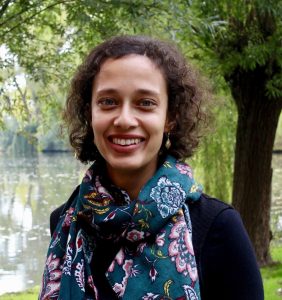
SHERRY SHENODA
Sherry Shenoda is an Egyptian-American poet and pediatrician, born in Cairo and living in Los Angeles. Her work is on the intersection of human rights and child health. She is currently serving as a pediatrician in a non-profit health center caring for children in the community and who are transitioning out of homelessness. Her published works appear in the journal Pediatrics and center on policy related to the effects of armed conflict on child health, on which she has briefed the US Senate. She is working on her first collection of poetry and has recently submitted her first novel for publication.
“Alms” | “On Space” | “Race Against Time”
Shenoda’s unimpressive “Alms” reads like a snooze, it never really awakens at any point; with lines so mundane as to have neither the electricity nor the calmness to allow it to be read as remarkable poetry. While the emotion at its core is affecting, its rendition is feebly-worded and ultimately sterile. It is free verse that becomes too free—free from any poetic form which could arrest one’s attention:
What they don’t tell you
when you go to medical school
is that among the fever, croup,
diaper rashes, ear infections,
you have to stop everything
to call the funeral director
and plead on behalf of your patient’s brother
shot on the front doorstep,
three weeks dead.
“On Space” isn’t much of an improvement. It is a poem that has a lot to say but never really says much. It has a restraint that does it disservice:
Of Cairo’s nineteen million,
one live in the cemeteries,
in sepulchers, with
the quietest of neighbors. . . .
With an opening stanza like this, the poem could go in a number of routes, but the lines that come after leave much to be desired. The symbols soon wear thin as they keep switching between the literal and the figurative. The breaking of the last body of thought into four stanzas, a technique which often gives heft to what is being expressed, feels terribly unearned. The composition is trite, unmoving—falling short of being the punch line it is intended to be.
The one-colour palette spills into “Race against Time.” At this point, the voice starts to get monotonous. But the tepid beginning betrays the rest of the poem. In part II of “Race,” we begin to experience a new voice—unflinching and measured. It appears to be about a revolution (which fails, as the poet is kind enough to inform us at the end). Unlike the first two, this poem is a complete artistic victory—its execution and intention are aligned with eloquence. The conflicting hopelessness and confidence in these lines lend the work an overall urgency:
They tell us to arm the masses
as though that will end a violent era,
and I ask, what if the masses are brown,
black?
Do you need another alibi,
another excuse to gun us down?
READ: Brunel Prize 2019 Poems Review | Part 1: Jamila Osman & Selina Nwulu
READ: Brunel Prize 2019 Poems Review | Part 2: Omotara James & K. Eltinae
READ: Brunel Prize 2019 Poems Review | Part 3: Afua Ansong & Mary-Alice Daniel
ABOUT THE REVIEWER
 Kanyinsola Olorunnisola is a poet, essayist, and writer of fiction. He writes from Ibadan, Nigeria. His debut poetry chapbook, In My Country, We Are All Crossdressers, was released by Praxis Magazine. He is the founder of the literary movement, SPRINNG: Society for the Promotion, Revitalization, and Improvement of the New Nigerian Generation. He loves experimental literature, pop culture, and Nigerian jollof rice.
Kanyinsola Olorunnisola is a poet, essayist, and writer of fiction. He writes from Ibadan, Nigeria. His debut poetry chapbook, In My Country, We Are All Crossdressers, was released by Praxis Magazine. He is the founder of the literary movement, SPRINNG: Society for the Promotion, Revitalization, and Improvement of the New Nigerian Generation. He loves experimental literature, pop culture, and Nigerian jollof rice.





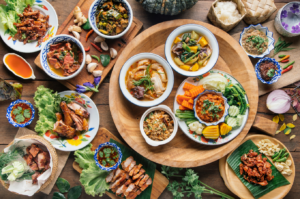
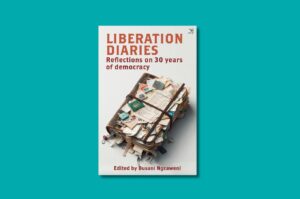


COMMENTS -
Reader Interactions